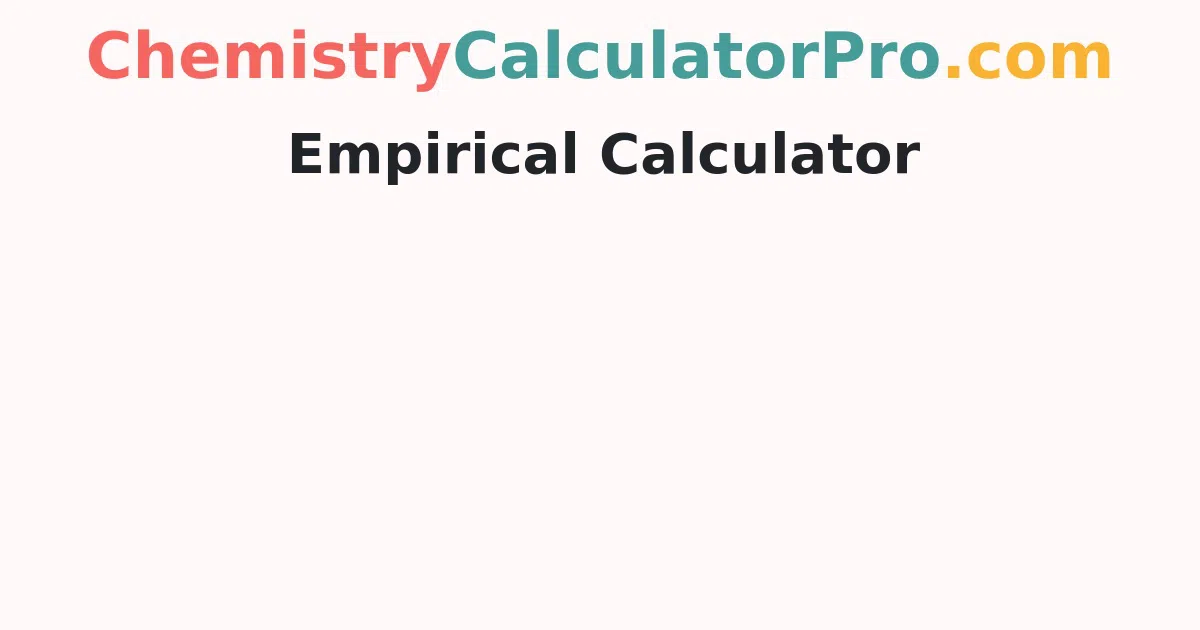Empirical Calculator
The Online Empirical Calculator provides the empirical formula of chemical composition. It just takes the chemical composition of the substance and generates precise results.
Empirical Rule Formula
In chemistry, an empirical formula in a given chemical compound yields the simplest positive integer ratio of the chemical compound's atoms. It does not provide complete information about the absolute number of atoms present in a single molecule of a chemical compound, unlike the molecular formula. If a compound's molecular formula cannot be reduced any further, the chemical compound's empirical formula is the same as the molecular formula.
How to Determine Empirical Formula?
Examine the simple procedure for obtaining the empirical of a chemical compound.
- Step 1: Understand a chemical compound's chemical composition.
- Step 2: Calculate each component's molar mass.
- Step 3: Convert each component's molar mass to moles.
- Step 4: Find the mole value that is the smallest.
- Step 5: Subtract the smallest mole value from all of the components.
- Step 6: Divide each mole value by the fractional component.
- Step 7: Round your results to the nearest whole number.
- Step 8: To get the empirical formula, combine the components and numbers.
How Do I Use the Empirical Formula Calculator?
The following is the procedure how to use the empirical calculator:
- Step 1: Fill in the appropriate input field with the chemical composition.
- Step 2: To acquire the result, click the "Calculate Empirical Formula" button.
- Step 3: Finally, in the output field, the empirical formula for the supplied chemical composition will be presented.
FAQ on Empirical Formula
1. What is the importance of determining the empirical formula?
In chemistry, empirical formulas are useful because they show the link between the number of atoms in each element in a molecule.
2. What is an example of empirical formula?
The empirical formula of a chemical compound is the simplest whole-number ratio of atoms present in the substance, as defined in chemistry. The empirical formula of sulphur monoxide, or SO, as well as the empirical formula of disulfur dioxide, S2O2, are basic examples of this concept.
3. What method do you use to understand empirical formulas?
A formula that shows the elements in a compound in their lowest whole-number ratio is known as an empirical formula. Glucose is a simple sugar that serves as the primary source of energy for cells. C6H12O6 is its molecular formula. The empirical formula for glucose is CH2O because each of the subscripts is divisible by 6.
4. Who came up with the empirical formula?
When the skewness is minor, the empirical formula (mean - mode) = 3(mean - median) found by Karl Pearson seems to work. In reality, under some circumstances, it can be demonstrated to be roughly correct.
